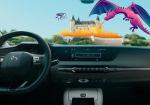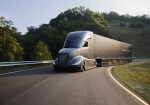Hydrogen-Powered BMW iX5: A Glimpse into the Automotive Future

by AutoExpert | 12 September, 2023
BMW is making bold strides into the future of automotive technology with its hydrogen-powered iX5. As the electric vehicle (EV) landscape evolves, BMW is exploring hydrogen as a viable alternative source of power.
In an interview with Automotive News, Juergen Guldner, the general program manager of hydrogen technology at BMW, explained that hydrogen power is being considered alongside battery-electric vehicles (BEVs). This move has garnered interest and support from those who believe that batteries alone may not suffice for all future automotive needs. Having a backup plan like hydrogen power becomes increasingly relevant as the automotive industry evolves.
To gauge interest and collect valuable customer feedback, BMW has deployed a small fleet of iX5 hydrogen-powered vehicles. These vehicles have been tested and evaluated in various regions, including Germany, California, and the Middle East. The feedback received has been encouraging and has bolstered BMW's optimism about the potential of hydrogen as an alternative energy source.
Customers have appreciated the iX5's consistent range performance, even in diverse climates, from scorching summers to chilly winters. For those in hotter regions, the ability to run air conditioning without depleting the vehicle's range is a significant advantage.
However, not everyone shares the same enthusiasm for hydrogen power. Volkswagen CEO Thomas Schafer has expressed skepticism about the competitiveness of hydrogen as a fuel source and has announced a full focus on electric vehicles instead.

BMW remains committed to the potential of hydrogen power. The company envisions its hydrogen-powered vehicles entering production in the near future. BMW's Neue Klasse platform, which will underpin all future electric BMWs, is being designed to accommodate hydrogen drivetrains. A key engineering challenge is the development of hydrogen tanks that can fit into the space typically allocated for EV batteries.

BMW aims to launch its first hydrogen-powered vehicle by 2030. To achieve this goal, BMW has collaborated with Toyota, a staunch advocate of hydrogen technology. The iX5 incorporates fuel cells from Toyota, showcasing the synergy between the two companies in exploring the future of hydrogen-powered transportation.

While Toyota's Mirai currently stands as the flagship hydrogen-powered vehicle in their lineup, the company has ambitious plans to introduce an H2 engine in a Hilux model by the end of the decade. This collaboration between BMW and Toyota highlights the industry's collective effort to explore alternative energy sources and shape the future of mobility.

















